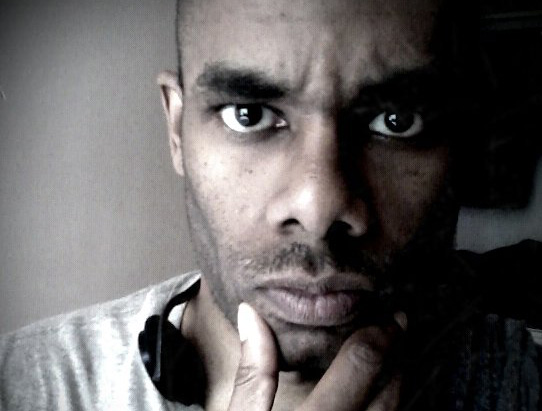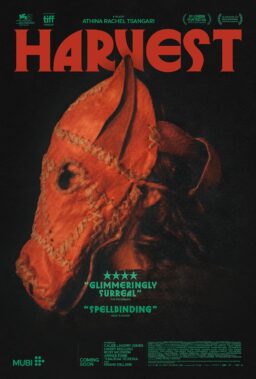Apart from the dozens
of titles it screened, the 20th Los Angeles Film Festival was fairly bursting
with special events, red carpet lineups and industry talks, none of which you
will read about here. I attended the festival’s preview and public screenings intent
on seeing as many films as possible and stuck to the plan as single-mindedly as
a shark in seawater.
Despite
the festival’s emphasis on cute and quirky American indie films (many of them
set in and around Los Angeles),
it’s the fine documentary and foreign selections that give it a vital reason
for being. This is especially true given the setting, the Regal multiplex in
the heart the L.A. Live entertainment complex. Here in the home of superhero
movies and “Maleficent,” we watched the kind of films that would otherwise
rarely or never make it to these screens. Yet the finest films seemed quite
comfortable up there, playing to packed houses of diverse, popcorn-munching
crowds. Putting even more ostensibly difficult films in such a solidly
mainstream commercial space is a challenge the festival’s directors should take
up and push even further (how about some underground/experimental stuff?) next
time around.
Of
the 30 films that I saw, here are impressions of the ones that stuck with me, along
with reasons why some of these should go head to head with the likes of “22 Jump Street”
and “Transformers” beyond the festival circuit.
“OF
HORSES AND MEN” (International Showcase)
Benedikt Erlingsson’s horse saga has broken box office records back in its home
country, Iceland, and has had much success at festivals around the world, so
why not here? The subtitles? There aren’t that many, as this film’s tragicomic
adventure plays out mostly in dynamic action; looks and gestures of universal
emotions, urges, mishaps and triumphs. The episodes within “Of Horses and
Men” play out like fables adapted from a dirty joke book by a master
filmmaker. Some wise studio should snag the rights and open it on 4,000
American screens this Christmas without explanation.
“THE
GREAT MUSEUM”
(International Showcase)
A lovelier cousin of museum documentaries like “The New Risjkmuseum,”
this film observes the renovation of Vienna’s Kunsthistorisches Museum with a superior sense of visual
and aural rhythm. Every shot of museum staff hard at work is as fastidiously
composed as some of the imperial portraits in the museum’s collection, but
never truly static. We are continually presented with a curious situation
already in progress, seen from a disorienting angle, until time and a shift in
perspective deliver a subtle visual punchline. The larger “joke” of
it all is how this palace of fading imperial art and history struggles to stay
alive and relevant to the public while, behind the scenes, a rigid class system
keeps tiers of employees in separate worlds.

“EVOLUTION
OF A CRIMINAL” (Summer Showcase)/”OUT IN THE NIGHT” (Documentary Competition)
Darius Clark Monroe traces his own brief history of crime, the bank robbery he
pulled off in 1997 with the help of two friends and a shotgun. He was 16 at the
time. I went into this film with no knowledge of its subject, just the title. That
seems like the ideal way to approach “Evolution of a Criminal” if you
think you’ve got the movie’s number just from reading the above synopsis.
Through some formal juggling, it experiments with the audience’s susceptibility
to stereotypes and profiling. “Out in the Night” does the same with the case of
four lesbian friends who went to prison for fighting off their bigoted attacker.
Having caught a preview screening of it, I missed the chance to watch “Out in
the Night” one more time at the festival proper, to see if the audible gasps and
conversations it provoked would happen again on a larger scale.
“STRAY DOG”/”MEET THE PATELS”
(both Documentary Competition)/”THE OVERNIGHTERS” (Summer Showcase)
The common denominator
between these three wildly different docs about American lives is their ripeness
for Reality TV exploitation. But each one fashions something cinematic out of
its compelling characters. Ron “Stray Dog” Hall in “Stray Dog” is the kind of brawny
biker character reality television loves. Ravi Patel is the classic lead in his
own true life family comedy, “Meet the Patels.” And “Overnighters” Pastor Jay
Reinke, the compassionate preacher sheltering hundreds of homeless “sinners”
while his mellifluous voice diverts everyone from his own dark secrets, is
destined to be played by Bryan Cranston one of these days.
“MY NAME IS SALT”/”WALKING
UNDER WATER” (Documentary Competition)
The common denominators between these two subtly different docs about ancient practices on the margins
of the modern world are their patient storytelling and natural beauty.
“COMET” (Narrative
Competition)
At last, a hipster
visual anthem designed for something bigger than an iPad screen. “Comet” is
about two completely jaded and self-absorbed 20-somethings who see the world as
one giant cliché to be sneered at—until they find each other. What’s most interesting
about writer-director Sam Esmail’s approach isn’t his alternately grating and endearing
lovebirds (Justin Long and Emmy Rossum), but his decision to shoot it all as if
it were in the cosmic company of “2001: A Space Odyssey,” “Persona” and (more
its speed) “”Eternal Sunshine of the Spotless Mind.” Esmail’s stylistic
confidence is reminiscent of an earlier generation’s boy wonders, Andersons Wes
and P.T., but he’s got his own visual ideas cooking.
“JOY OF MAN’S DESIRING”
Denis Cote explores a
factory and the machines and workers that co-exist within it. No way in hell
this mostly non-verbal study of movement, textures and attitudes in the modern
workplace would ever play a multiplex, outside of a festival like this one, but
one can dream. And the movie is a dream.
“BILLY
MIZE AND THE BAKERSFIELD SOUND”/”SOUND OF REDEMPTION: THE FRANK MORGAN STORY” (both
Documentary Competition)
Two music documentaries elucidating the pressures
that formed and eventually wore down great, tragic American musicians in the
second half of the 20th century. The Billy Mize doc is more
elegantly told than the Frank Morgan one, but the magnetic subjects of both reward
the uninitiated with a certain amount of awe.

“LAST DAYS IN VIETNAM (Summer Showcase)”
Rory
Kennedy’s account of the evacuation of Saigon just before its fall
benefits from access to
insiders like Henry Kissinger and newly uncovered Super 8 footage shot
by a
U.S. Navy sailor. We
can now see the view from an aircraft carrier where those helicopters
famously overloaded with Americans and refugees landed by the skin of
their teeth. The suspense, cutting between the ships, the choppers and the
chaos in Saigon, is nerve-wracking. Kennedy is determined to steer
clear of politics—a contortionist act, basically—and chronicle the
events in
terms of individual acts of heroism in a shameful time.
“I AM BIG BIRD” (Free Community Screening)
Though this biography of Caroll Spinney, the puppeteer
of Big Bird and Oscar the Grouch played not at the Regal but at the public California Plaza, it’s the festival film that most
belongs in the multiplex. Who wouldn’t pay $13 to see the origin story of Big
Bird? Especially one that has at least four shameless weepy moments, including
footage of Bird singing at Jim Henson’s funeral and a surprisingly emotional
passage on “Big Bird Goes to China.”












